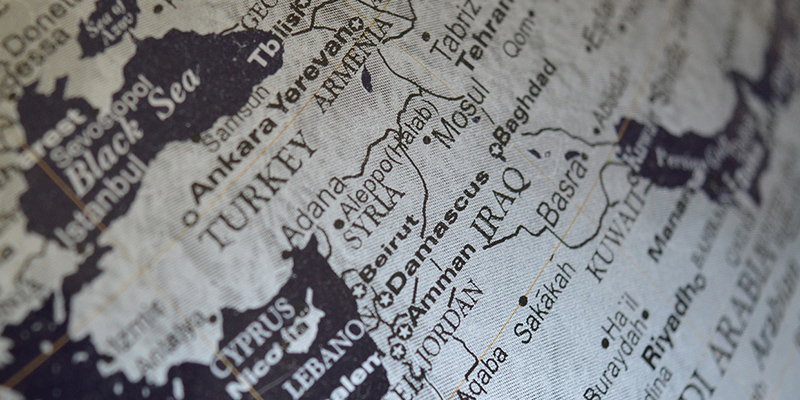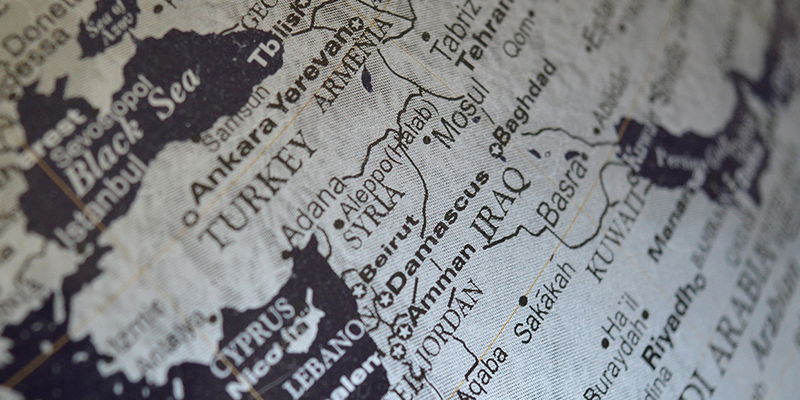Five reasons why the COVID-19 crisis is related to arms control

Five reasons why the COVID-19 crisis is related to arms control
It is still too early to identify all the lessons to be learned from the COVID-19 crisis, which affect issues such as global health, the economy, governance and leadership, remote work, international cooperation and more. However, there are already at least five correlations between the pandemic and arms control and the role of the military that can be considered in the upcoming weeks and months.
1) The impact of the pandemic on arms control processes
This may have been overlooked by the mainstream media during coverage of the pandemic, but among the many events cancelled or postponed was the Review Conference of the Treaty on the Non-Proliferation of Nuclear Weapons (NPT), due to take place in New York at the end of April 2020. It will now be rescheduled to a date no later than April 2021. This gathering of all parties of the NPT (all UN states except India, Israel, North Korea, Pakistan and South Sudan) was being held to celebrate the 50th anniversary of entry into force of this important treaty that limited the spread of nuclear weapons. However, prospects for further progress were bleak due to divisions between the supporters of nuclear deterrence and the vast majority of the international community eager to move towards nuclear disarmament, as originally promised in the NPT. In addition, the risk of nuclear war is now estimated by most experts as higher than during the Cold War, and the arms control framework is being gradually dismantled (following US withdrawal from the ABM and INF treaties and the upcoming expiration of the New START Treaty), paving the way for an unbridled arms race. Even if negotiations for a successor to the New START Treaty are made virtually impossible by the coronavirus crisis, a five-year extension should pose no difficulties, and should be the urgent priority of the United States and Russia.
2) The priority given to military spending over healthcare and other social needs
Every year, the Stockholm International Peace Research Institute (SIPRI) publishes global military spending figures, as well as those of the international trade in conventional armaments. In 2018, the amount of global spending on weapons and military personnel reached $1,822 billion (or 2.6% of the world’s nominal GDP). Exports of conventional arms total $130 billion per annum on average. Moreover, all nuclear-armed states have already implemented or are planning major modernisation of, or upgrades to, their arsenals and delivery means: e.g. $1.7 trillion by the United States until 2046; $600 billion by Russia between 2011 and 2020; $255 billion by the UK until the 2040s; $41 billion by France between 2019 and 2025 (a 60% increase compared to the previous five-year period).
Now that the world is suffering the effects of the COVID-19 pandemic, with many thousands of fatalities expected, governments are facing criticism for not having sufficiently invested in public health to face such a crisis. These criticisms are backed by research, such as a study conducted in 2018 that showed that higher military spending “negatively impacts health expenditures, and therefore [becomes] an important risk factor for population health and individual well-being”. Concretely, a 1% increase in military spending results in a 0.62% decrease in health spending, increasing to a 0.962% drop in poorer countries. It is no wonder then that some NGOs and humanitarian groups have highlighted that, for example, the annual spend on nuclear weapons in the United States ($35.1 billion) could pay for 300,000 intensive care unit beds, 35,000 ventilators, 150,000 nurses or 75,000 doctors.
This is not just an issue regarding resources; political opportunism is also on the rise. Confident that the coronavirus crisis was the focus of the world’s attention, North Korea increased its number of missile test launches in defiance of the international community, while the US tested its own controversial hypersonic missile and is said to be preparing military action against Iran, much weakened by the pandemic and US sanctions.
3) The realization that disease could be used as a weapon
Among the mass of information about the coronavirus that flooded the world’s media, especially social media, rumours and conspiracy theories stated that COVID-19 had been created in Chinese, Canadian or US laboratories, possibly as part of biological weapons programmes. Despite being widely disproven scientifically, such beliefs linger in the minds of the uninformed or those who pursue political or ideological agendas. Whether the pandemic started as a result of a purely natural outbreak, negligence or accidental release, it may act as a wake-up call to tell the world that it should be better prepared to prevent or mitigate the effects of these kinds of biological risks in their full spectrum (from natural outbreak up to deliberate use by state or non-state actors). This comprehensive approach has been at the centre of discussions surrounding the 1972 Biological and Toxin Weapons Convention (BWC) since 2003, and has allowed for fruitful debates and useful initiatives among all relevant stakeholders, including governments, the World Health Organization (WHO), the scientific community, civil society and the biotechnology industry. If state or non-state actors want to spread disease as a weapon (which may be facilitated by easy access to techniques such as DNA recombination or gene editing), they should be deterred by strong measures of prevention and mitigation (such as sensitised and immunised populations, well-equipped hospitals, anti-contamination measures, etc.) that would also function effectively in case of natural outbreaks. In recent years, international efforts to combat potential bioterrorism focusing on “hard security” approaches have diverted attention and resources from real global health needs.
4) The need to rely more on science
Just like climate change deniers, world leaders have disregarded (and still do, e.g. Bolsonaro in Brazil) serious warnings expressed by the scientific community about the threat the pandemic poses. In China, at the beginning of the outbreak, whistle-blowers were arrested for “spreading panic”. Despite the warning signs raised by previous epidemics, European leaders failed to apply severe confinement measures and widespread testing of potential patients because it was believed that the coronavirus would not be sufficiently contagious. It is, of course, difficult to react in timely fashion with appropriate measures when all scientific data is not yet available. But precautionary – if not radical – measures were called for, in much the same way as the repeated warnings from experts about the climate crisis or the humanitarian consequences of nuclear weapons. In this respect, it seems inappropriate to attempt to mobilise populations and promote national unity by resorting to military rhetoric: e.g. “the war on COVID-19”, “frontline”, “battlefield”, “fighters”, “weapon against the virus”, etc. Indeed, such metaphors tend to exclude any democratic debate on the validity of the measures taken or criticism that may come from the scientific community. Moreover, they trivialise real war situations such as in Syria or Yemen, where many more victims can be found. Recourse to military personnel to assist civilian health responders or fulfil some security functions is, of course, welcome, but it will eventually only highlight the insufficiencies of public health resources that have arisen due to government excessive spending in favour of defence and the military.
5) The inevitability of multilateral and coordinated approached over unilateralism
Like other transnational security threats in a globalised world – climate change and extreme weather, terrorism, organised crime including cybercrime, trafficking, arms proliferation, etc. – epidemics and pandemics know no borders. It should thus be clearly understandable that responses to such threats can only be global, multilateral and based on cooperation rather than individual, unilateral or selfish measures. Yet the reaction in most cases has been to isolate countries and close borders, often after people had already been infected (but not detected) and were continuing to spread the virus. No single country can act effectively without access to scientific data and good practices that need to be widely shared.
Some highly sensible recommendations were made by leading humanitarian actors, ones that could also inspire decisions in other areas such as climate change or arms proliferation. These are: 1) prioritise global health over any economic or political goal; 2) assist the least developed countries and the most vulnerable people within societies; 3) coordinate efforts with other countries and regions, notably through international or regional organisations; 4) beware of divisive, racist or authoritarian responses as well as the spread of disinformation; 5) support the establishment of “humanitarian corridors” or ceasefires in conflict situations to allow for the treatment of patients. In summation: “We must ensure that human solidarity does not become a casualty of this pandemic.” Moreover, as others have advocated, we need a new global security system based on human security.
Disclaimer: The views, information and opinions expressed in the written publications are the authors’ own and do not necessarily reflect those shared by the Geneva Centre for Security Policy or its employees. The GCSP is not responsible for and may not always verify the accuracy of the information contained in the written publications submitted by a writer.
Marc Finaud is a former French diplomat who was seconded to the GCSP from 2004 to 2013 and is now a staff member. At the GCSP, Mr Finaud was leading activities related to Arms Proliferation.


